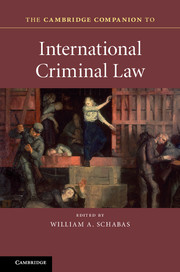14 - Adolf Eichmann
from PART IV - TRIALS
Published online by Cambridge University Press: 05 December 2015
Summary
‘Un momentito, señor’, said Mossad agent Peter Malkin almost apologetically to attract the attention of a synchronised walker who was getting lost in the shadows of a small town in the province of Buenos Aires in the middle of the year 1960. These were the simple but very symbolic words that started a chain of events that irrevocably changed the landscape of international criminal law. After some considerations on the historical background of the Eichmann case the chapter will analyse the main legal issues of the trial.
Historical background: from Berlin and Buenos Aires to Jerusalem
Otto Adolf Eichmann was a member of the Schutzstaffel (‘SS’), the Sicherheitsdienst (‘SD’) and the Gestapo, all of which were declared to be criminal organisations by the Nuremberg International Military Tribunal. More importantly, in the Nazi's bureaucracy of destruction, he was the head of the section IV B 4 of the Reichssicherheitshauptamt, an office that resulted from the merger of the security service of the Nazi party and of the security police of the Nazi state (Gestapo). In this function, Eichmann organised and coordinated the deportations of the Jews to the concentration camps. The Jerusalem District Court that sentenced Eichmann to death on 12 December 1961 summarised his role as follows:
We find that in the RSHA (Reichssicherheitshauptamt), the central authority dealing with the ‘Final Solution’ of the Jewish question, the accused was at the head of those engaged in carrying out the ‘Final Solution’. In fulfilling this task, the accused acted in accordance with general directives from his superiors, but there still remained to him wide discretionary powers in planning operations on his own initiative. He was not a puppet in the hands of others; his place was amongst those who pulled the strings. It should be added […] that the accused's activity was most vigorous in the Reich itself and in the other countries from which Jews were despatched to Eastern Europe; but it also ranged widely in various parts of Eastern Europe.
Like many Nazi war criminals, Eichmann managed to escape from immediate post-war prosecution. At the beginning of 1946, Eichmann, using the aliases Otto Heninger and Otto Eckmann, escaped from American war captivity and went into hiding in a small village in the Lüneburg Heath, an area in northern Germany. There he lived an inconspicuous life and enjoyed apparently widespread appreciation.
- Type
- Chapter
- Information
- The Cambridge Companion to International Criminal Law , pp. 275 - 294Publisher: Cambridge University PressPrint publication year: 2016



